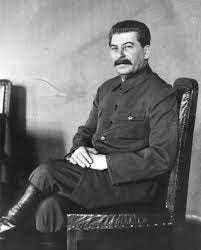Thinking Through Two Pulitzer Controversies
The Times's Stalin problem and whether to use the Pulitzer carrot as a diversity stick
Welcome to Second Rough Draft, a newsletter about journalism in our time, how it (often its business) is evolving, and the challenges it faces.
Last week’s announcement of the winners of this year’s Pulitzer Prizes marks the close of the high season for annual awards, and a good time to talk about a couple of issues that have come up around the Pulitzers, and prizes generally.
First is the question of when a prize should be returned or rescinded. It has arisen—again-- especially in the case of the 1932 Pulitzer for Correspondence to Walter Duranty of the New York Times. There is no longer a serious question that Duranty concealed the crimes of Stalin and the resulting famine in the Soviet Ukraine. In one of his prize-winning pieces, he claimed that Stalin’s “liquidation of the kulaks” was not an injunction to kill people, but a call for “the hot fire of exile and labor.” In fact, at least 30,000 were murdered directly, while another perhaps four hundred to five hundred thousand died en route to or as a result of their forced exile. The Pulitzer Board, after a review in 2003, concluded it lacked proof of Duranty’s deception, and declined to revoke his prize.
In a front-page 1933 piece headlined “Russians Hungry But Not Starving,” Duranty (two years after his Pulitzer-winning work) wrote, on his own authority, that “you can’t make an omelette without breaking eggs.” The famine of 1932-33 is now understood to have killed three to five million people. The Times, after its own review in 2003, pretty much disowned Duranty’s work, but has declined to symbolically return the Pulitzer, at one point noting it doesn’t physically have the prize. It still lists the award on its corporate website. Earlier this month, former Times executive editor Bill Keller told David Folkenflik of NPR he has come to believe that retaining the prize is a mistake, and I think he’s right.
Needed: some general rules
What’s needed here is some common understanding about the circumstances that should require the return or rescinding of a prize. The fairly quick revelation of fabrications by Janet Cooke of the Washington Post in 1981 was such an occasion, but what should be the general rule? To me, the answer should not be whether some historical figure meets our modern standards of journalistic conduct. That would be a very slippery slope, as I think this piece of mine about the behavior of the late Anthony Lewis including while he was winning the 1963 Pulitzer for National Reporting, illustrates.
Rather, it should be whether the reporter in question met the journalistic standards of their own time (as Lewis surely did). Duranty’s is a closer call than Cooke’s, but I believe he did not. There is some evidence he knew that his stories were untrue, and was either too enamored of Stalin or eager for access to say so. The stories themselves boast of their dependence almost entirely on official sources, and deprecate Stalin’s critics. The previous year’s winning coverage for the same prize, by H.R. Knickerbocker of the New York Evening Post and Philadelphia Public Ledger, was notably much more skeptical of Stalin and Stalinism.
A quick sidebar: one way the Pulitzer Board could help avoid heartache like this in the future would be to announce the finalists for prizes, as many other awards do, before announcing the winners. This would not only give finalists who do not go on to win a well deserved day in the sun, it would effectively use crowdsourcing to help spot possibly problematic winners ahead of their being designated.
How best to shine a light on diversity stats
The second current issue is the recent call by many journalism groups and news organizations to use the carrot of the Pulitzers as a stick, requiring newsrooms to disclose their progress (or lack of same) on diversifying their staff as a condition of qualifying for the Prizes. I couldn’t agree more strongly that disclosing the composition of news staffs is critically necessary, and that further progress on diversity is imperative. ProPublica has completed the relevant industry surveys every year, and has disclosed these numbers publicly annually since 2015. But I worry about the implications of starting to use Pulitzer entry rights as a way to police the industry, at least again absent some general rules.
Should the Pulitzer process be used only to promote transparency? Diversity? Transparency about diversity? These are not rhetorical questions. If the object is greater transparency overall, it’s easy to imagine a list of worthy additional disclosures, ranging from circulation/reach to revenue sources (including advertisers, owners and donors). Similarly, if diversity is the key value at play, is transparency about staff composition enough, or should pay equity, for instance, also be charted, or even mandated? Even if any or all of these seem worthy goals, is the self-perpetuating Pulitzer Board the best group to mandate emerging industry standards, particularly in a time of such ferment and change?
My own thought is that restricting Pulitzer eligibility is not the best instrument, even for the worthy purpose sought in this initiative. Better, I think, for the signers of the letter to the new Pulitzer administrator to engage in self help: news organization signatories might refuse, for instance, to partner on stories with others that won’t disclose their staff breakdowns. Associations might bar from membership or conference speaker slots executives of companies that fail this test. The results would likely be the same, but with the advantage of placing the accountability for driving industry change where it belongs—with all of us.



Diversity drives almost always favor larger companies rather than smaller ones where the limited number of employees make diversifying them more difficult. The Pulitzer already awards mostly larger newsrooms anyway but mandates like this that limit the pool of applicants seem like the opposite of inclusive even if they have the opposite intention.
I have been associated with the George Polk Awards for half a century and the past 45 years consecutively as a juror and member of the committee charged by Long Island University with guiding the awards. Speaking for myself not the committee or LIU I think the very notion of using any awards process to further social or political goals violates a basic tenet of the kind of journalism we seek to honor. While there is no doubt the Pulitzers carry more prestige than the Polks m, one area that has distinguished our process is its independence of influence by our sponsoring institution (which unlike Columbia plays no role in selecting or approving winners) or representatives of competing entries To their credit the Pulitzers have democratized their work in recent years (moving away from undue influence of news executives prone to scratch each other’s backs). Making the prizes open only to entities adhering to certain policies would be a step too far — and in the wrong direction.